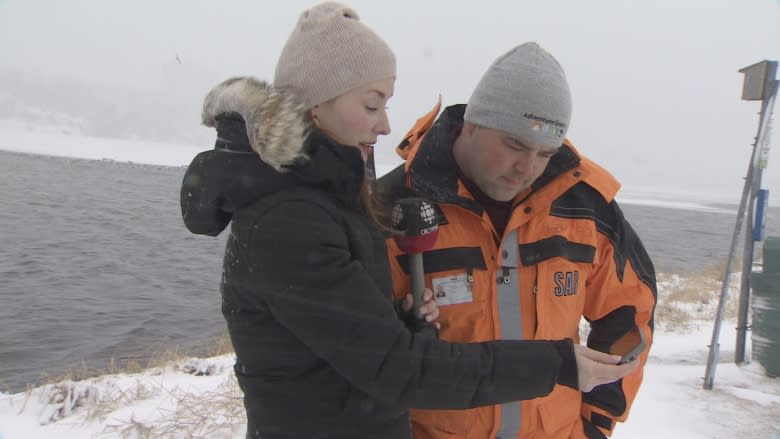No Newfoundland ice is safe right now, says rescuer who helped save hunters
A search and rescue volunteer who assisted with the recent rescue of three hunters on Newfoundland's Avalon Peninsula says it's just not safe for people to be on any natural ice surfaces across the island.
Paul French, a volunteer with Rovers Search and Rescue and a coordinator with the Search and Rescue Volunteer Association of Canada, spent much of Saturday rescuing three moose hunters who went through ice in the back country near Witless Bay Line.
The three hunters were well prepared and were found safe and in good spirits when rescuers arrived, but French says it's just another example of why people should think twice before venturing out on ice surfaces in Newfoundland right now.
"Right across the province, the ice conditions are not safe," French told the St. John's Morning Show on Tuesday.
"Really, really be careful. There are a lot of ponds around that still have open spots in them."
Volatile temperatures and rain across the island this winter have wreaked havoc on the stability of the ice, French said, and even though it may seem cold outside people need to realize that doesn't necessarily translate into frozen ponds, lakes and rivers.
In the case of the three hunters he helped rescue, French said they were all experienced but still underestimated the thickness of the ice on a brook they were trying to cross in their Argo all-terrain vehicle.
He said recent warm weather and rain has been warming up waterways and unsafe conditions under surface ice might not be visible.
The 3 Ts
French said the most important factors to ensure safety before heading out on the ice can be broken down into what's called the three Ts — trip planning, training and taking the essentials.
He said you should let a responsible person know where you are going and what time you should be back, be trained in first aid and other necessary survival skills and have dry clothes, fire lighting equipment and tools to fix whatever vehicle you are traveling on.
Another thing to keep in mind, French said is something called the 1-10-1 principle.
"If you are out there and you're cold or you do go through the ice, you have one minute to control your breathing, 10 minutes of meaningful movement and one hour before hypothermia sets in."


